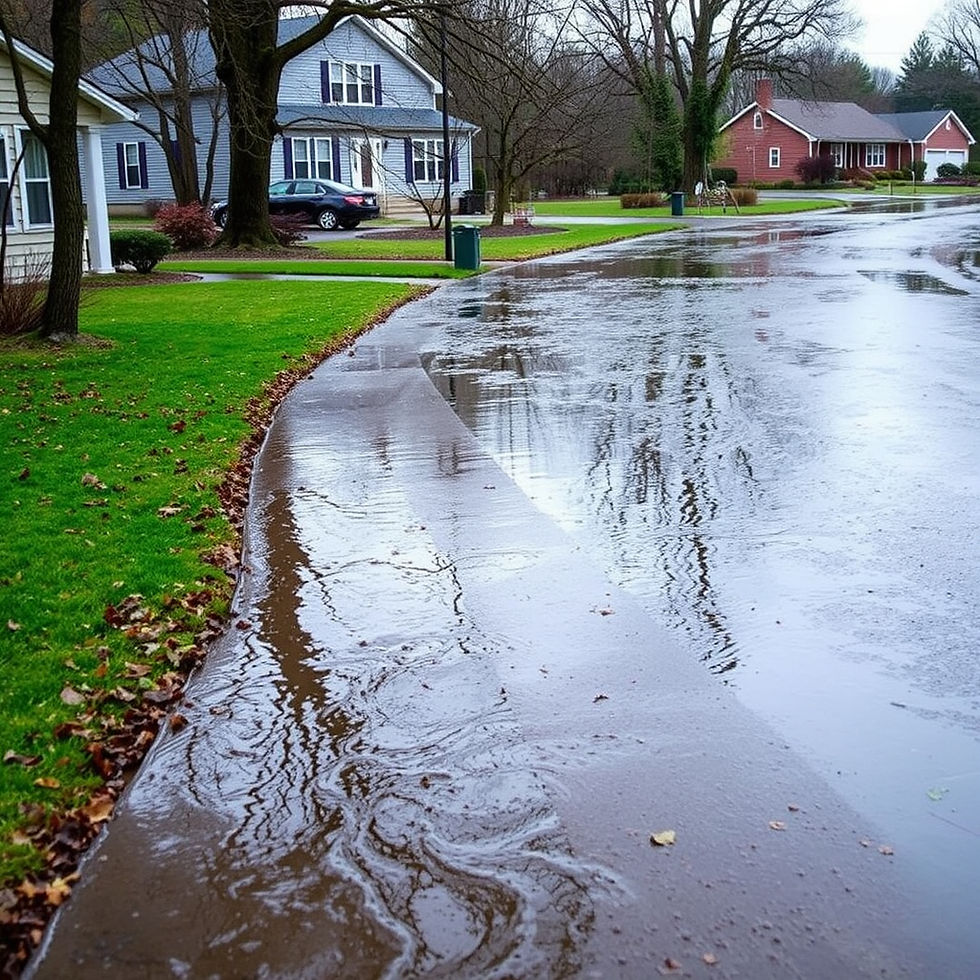How Long Do AC Units Last in Florida? A Complete Homeowner’s Guide
- Jayant Upadhyay
- Jul 22
- 4 min read

Table of Contents
Introduction
What Impacts AC Lifespan in Florida?
Average Lifespan of AC Units
Florida’s Unique Climate and Its Effects
Types of AC Units and Their Durability
Signs Your AC Might Be Failing
How to Extend Your AC's Life in Florida
Maintenance Tips for Longevity
When Should You Replace Your AC Unit?
Cost of Replacement vs Repair
Energy Efficiency and SEER Ratings
Smart Thermostats and Modern Upgrades
Choosing the Right HVAC Contractor in Florida
Conclusion
1. Introduction
Florida is known for its subtropical climate and intense summer heat, which makes air conditioning not just a luxury but a necessity. But how long can you expect your AC unit to last in Florida’s climate? This blog explores every detail you need to know, from typical lifespans to maintenance, signs of failure, and when it’s time to upgrade.
2. What Impacts AC Lifespan in Florida?
The lifespan of an AC unit in Florida is influenced by several factors:
High humidity levels
Salt in coastal air
Continuous year-round usage
Storm damage and hurricanes
Improper installation or undersized systems
These factors make Florida a particularly harsh environment for HVAC systems compared to other U.S. states.
3. Average Lifespan of AC Units
Nationwide Average
Most air conditioners last 10 to 15 years on average.
Florida Average
Due to Florida’s demanding climate, the average drops slightly to 8 to 14 years depending on:
Maintenance quality
AC brand and model
Usage patterns
Heat pumps, which are common in Florida, also typically last 10–12 years.
4. Florida’s Unique Climate and Its Effects
Humidity
Florida’s average humidity can exceed 70%, which forces the AC to work harder not just to cool but also to dehumidify indoor air. This adds to wear and tear.
Coastal Corrosion
In cities like Tampa, Miami, and Fort Lauderdale, salty air can corrode AC components faster than in inland areas. Copper coils and metal frames degrade more rapidly near the ocean.
Hurricanes and Power Surges
Storms can lead to flooding, power outages, and surges that damage HVAC electronics and compressors.
5. Types of AC Units and Their Durability
Type of AC Unit | Lifespan in Florida |
Central AC | 10–14 years |
Ductless Mini-Splits | 12–15 years |
Window Units | 5–8 years |
Heat Pumps | 10–12 years |
Geothermal Systems | 20+ years (rare in FL) |
Note: Regular maintenance can extend these lifespans by 2–5 years.
6. Signs Your AC Might Be Failing
Uneven cooling or humidity levels
Frequent breakdowns
Increased electricity bills
Foul or musty odors
Noisy operation
AC runs longer to achieve desired temp
System is over 10 years old
If you observe multiple signs, it may be time to consider replacement.
7. How to Extend Your AC's Life in Florida
Here are proven ways to prolong your AC unit’s life:
Annual tune-ups by a licensed technician
Replace filters monthly (or as needed)
Keep condenser coils clean
Check refrigerant levels regularly
Install surge protectors
Use a programmable thermostat
Seal ductwork and insulate properly
Shade your outdoor unit to avoid heat buildup
8. Maintenance Tips for Longevity
Monthly Tasks
Clean air filters
Check thermostat settings
Inspect outdoor unit for debris
Quarterly Tasks
Clean vents and registers
Clear condensate drain line
Ensure airflow isn’t blocked by furniture
Yearly Tasks
Full system inspection by a certified HVAC technician
Refrigerant level checks
Electrical system audit
Duct inspection and cleaning
9. When Should You Replace Your AC Unit?
Replacement is typically necessary when:
AC is 12+ years old
Repair costs exceed 50% of replacement cost
Efficiency rating is low (below SEER 13)
You plan to sell the home (upgraded HVAC adds value)
Consider replacing before a major breakdown—especially before peak summer months.
10. Cost of Replacement vs Repair
Item | Average Cost |
Central AC Replacement | $4,500–$9,000 |
Heat Pump Replacement | $5,000–$10,000 |
Major Repair (Compressor) | $1,500–$3,000 |
Regular Maintenance | $150–$300/year |
Cost-saving tip: Newer units save 20–40% on electricity, which recoups cost over time.
11. Energy Efficiency and SEER Ratings
What is SEER?
SEER (Seasonal Energy Efficiency Ratio) measures cooling output per unit of energy. The higher the SEER, the more efficient the system.
Older units: SEER 10–13
New units: SEER 14–25+
In Florida, SEER 16+ is recommended due to constant usage. Many utility companies offer rebates for upgrading to higher-SEER units.
12. Smart Thermostats and Modern Upgrades
Smart home technology can significantly improve AC performance and longevity.
Smart thermostats like Nest or Ecobee optimize cooling
Zoning systems reduce strain on single zones
Humidity sensors help maintain indoor air quality
Wi-Fi diagnostics allow proactive issue detection
These upgrades typically cost $100–$500 but can extend system life and reduce bills.
13. Choosing the Right HVAC Contractor in Florida
Make sure to hire:
Licensed and insured professionals
Local technicians familiar with Florida’s climate
Contractors with positive online reviews
Companies offering warranty on labor and parts
Ask for free consultations and multiple quotes before making a decision.
14. Conclusion
AC units in Florida face harsh conditions, and their lifespan is slightly shorter than in other regions. Still, with regular maintenance, smart upgrades, and timely repairs, you can extend your AC unit’s life and avoid costly breakdowns.
Key Takeaways:
Expect 8–14 years of life from a central AC in Florida
Maintain it yearly to boost efficiency and longevity
Consider replacement after 10 years or when facing repeated failures
Use high-SEER units and smart thermostats for best performance



Comments